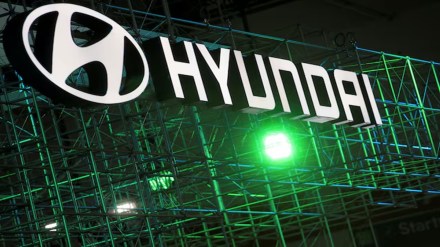As Hyundai Motor India prepares for its upcoming IPO, the grey market premium (GMP) for the company’s shares continues to decline. Currently, the shares command a GMP of around Rs 45, reflecting a marginal premium of 3% over the issue price, which is set in the range of Rs 1,865 to Rs 1,960.
This IPO represents a complete offer for sale (OFS) of 14.2 crore shares by the company’s Korean parent, valuing Hyundai Motor India at approximately Rs 1.6 lakh crore at the upper end of the price range.
The grey market premium (GMP) for Hyundai India shares continues to decline ahead of the IPO, currently standing at around Rs 45. This represents a marginal premium of 3% over the issue price. The GMP has plunged over 89% from its previous high of Rs 570.
Key Risks Associated with the Hyundai Motor India IPO
Hyundai’s complete offer for sale
The Hyundai Motor India IPO, structured as an offer for sale (OFS), will see 14.2 crore shares offloaded by its Korean parent, with no proceeds going to the Indian unit. This has raised concerns about whether the IPO lives up to the hype, as the funds won’t be used for the company’s immediate growth.
While an OFS allows existing shareholders to cash in, it doesn’t bring in new capital for growth. However, Hyundai Motor India can still use its cash reserves to pursue strategic expansions in the Indian market. The Korean parent, the world’s third-largest original equipment manufacturer, plans to use the IPO proceeds to invest in new products, technology, and research, which could benefit its Indian operations in the long term.
Higher Valuation than Parent and other Listed Peers
Hyundai’s Rs 27,870 crore IPO is seen as offering limited valuation comfort compared to Maruti Suzuki, which holds nearly three times the passenger vehicle market share, two-and-a-half times the sales volume, and similar profitability. At Rs 1,960, the upper end of the price band, many analysts believe the pricing is steep.
Hyundai is asking for a price-to-earnings (PE) valuation of 26x FY25 earnings, while Maruti Suzuki is trading at a PE of 22x its FY25 earnings. This PE ratio is also above the industry average of 24.41x and significantly higher than its parent company Hyundai Motor Global’s PE of 5x.
Conflict of Interest & Legal Disputes
The overlapping business activities of Kia Corporation and Kia India Private Limited, which are part of the same group, may lead to potential conflicts of interest that could negatively affect Hyundai Motor India.
The company and its subsidiaries, including its promoters, are currently involved in ongoing legal disputes. Adverse rulings in these cases could harm their business, reputation, financial standing, and operational performance.
Capacity Utilization
With the company’s production facilities operating at high levels of capacity utilization, the successful operationalization of the Talegaon production plant is crucial to meet future demand. Misestimating demand could result in either under- or over-utilization of manufacturing capacity, negatively impacting production schedules and associated costs.
Cost Pressures & Dependence on Non-Electric Vehicles
The overlapping business activities of Kia Corporation and Kia India Private Limited, which are part of the same group, may lead to potential conflicts of interest that could negatively affect Hyundai Motor India.
The company and its subsidiaries, including its promoters, are currently involved in ongoing legal disputes. Adverse rulings in these cases could harm their business, reputation, financial standing, and operational performance.
Hyundai’s sales heavily rely on non-electric passenger vehicles, and there are no guarantees that the company will successfully implement an effective and affordable electric vehicle (EV) strategy.
Manufacturing Interruptions & Competitive Landscape
Currently, all passenger vehicles and parts are produced exclusively at the Chennai Manufacturing Plant. Any disruptions or halts in manufacturing operations, including at the Talegaon facility once it becomes operational, could adversely affect the company’s overall results and financial condition.
In the rapidly evolving and competitive automotive market, Hyundai Motor India may struggle to compete effectively, potentially impacting its operations negatively.
(Disclaimer: Views, recommendations, and opinions expressed are personal and do not reflect the official position or policy of Financial Express.com. Readers are advised to consult qualified financial advisors before making any investment decisions. Reproducing this content without permission is prohibited.)
